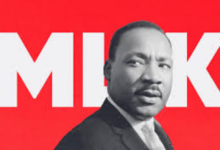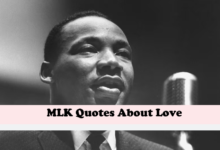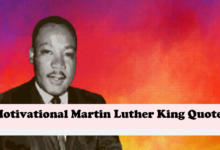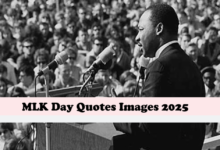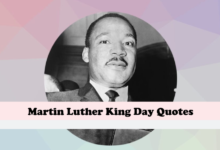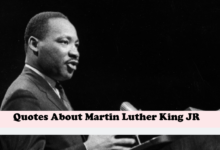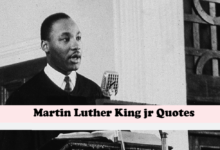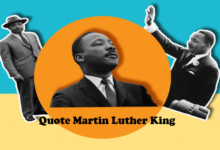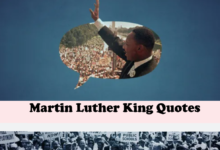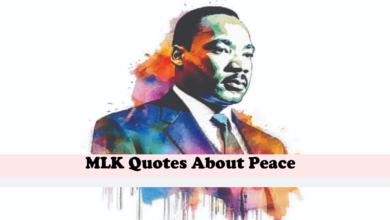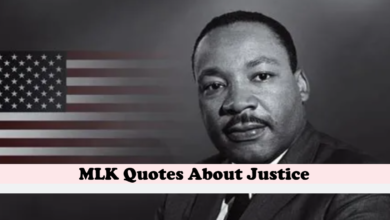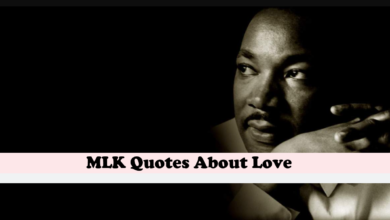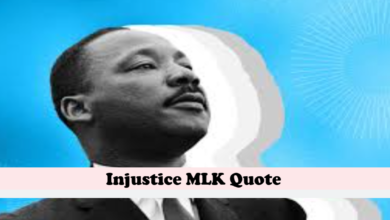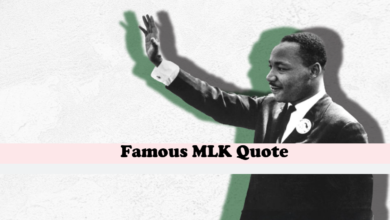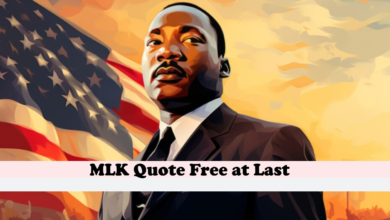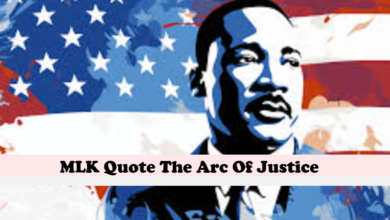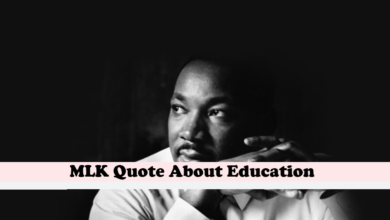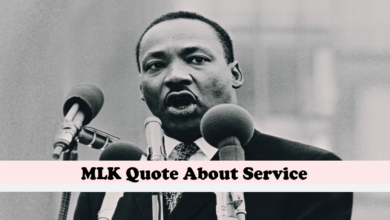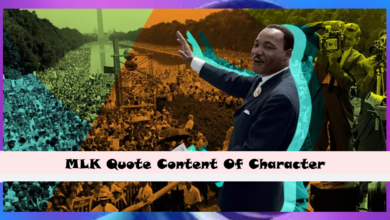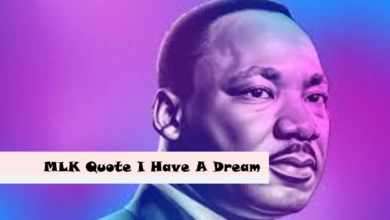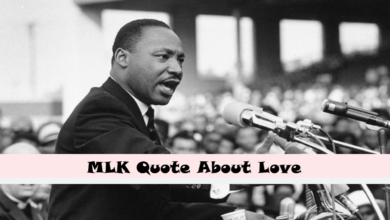MLK Quote About Character
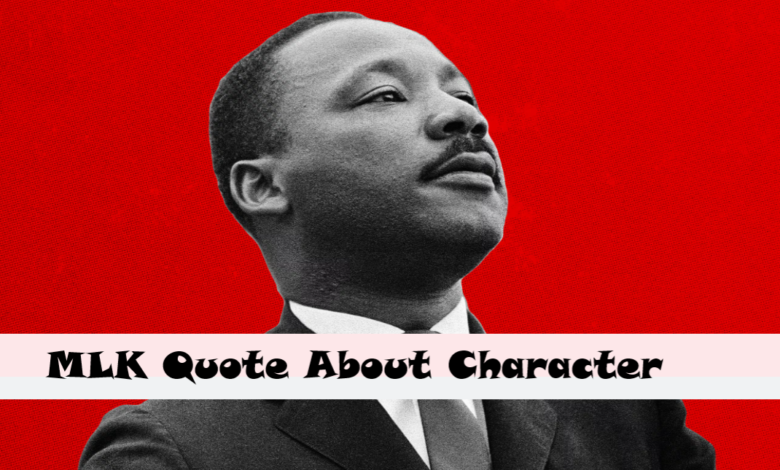
One of the most profound elements of Martin Luther King Jr.’s philosophy was his belief in the fundamental importance of character. He argued that the content of one’s character should be the defining measure of a person, rather than external factors like race, social status, or appearance. Dr. King’s famous quote, “I have a dream that my four little children will one day live in a nation where they will not be judged by the color of their skin but by the content of their character,” resonates deeply in today’s world as it did during the Civil Rights Movement.
This call to judge others by their character, rather than by superficial characteristics, remains a powerful message for society as a whole. In this blog post, we’ll explore the meaning behind Dr. King’s quote on character, its relevance in the context of social justice, and how his philosophy continues to inspire individuals and communities around the world.
MLK Quote About Character
Dr. King’s belief in the importance of character stemmed from his deep understanding of human dignity and morality. For King, character was not just about outward behavior; it was a reflection of one’s inner moral compass. A person’s character encompassed their values, their integrity, their actions, and the decisions they made, especially in moments of challenge or adversity.
In a society that often placed too much value on external appearances—race, wealth, or social status—Dr. King sought to remind us that true worth lies in the content of one’s character. To him, character was the foundation upon which society’s moral standards should be built. His belief in character as a guiding force for personal and social ethics was profoundly informed by his Christian faith, which emphasized love, humility, and justice.
In his famous speech during the March on Washington in 1963, Dr. King said, “I have a dream that one day… little children will be judged by the content of their character.” This dream spoke to the hope that individuals—regardless of the color of their skin—would have the opportunity to prove their worth based on their virtues and moral decisions, not on stereotypes or societal prejudices.
“I have a dream that my four little children will one day live in a nation where they will not be judged by the color of their skin but by the content of their character.”
“Forgiveness is not an occasional act. It is a permanent attitude.”
“We must learn to live together as brothers or perish together as fools.”
“Take the first step in faith. You don’t have to see the whole staircase, just take the first step.” [from the recollection of Marian Wright Edelman]
“With this faith, we will be able to hew out of the mountain of despair a stone of hope.”
“A riot is at bottom the language of the unheard.”
“The beauty of genuine brotherhood and peace is more precious than diamonds or silver or gold.”
“The arc of the moral universe is long, but it bends toward justice.”
“True peace is not merely the absence of tension; it is the presence of justice.”
“Injustice anywhere is a threat to justice everywhere.”
“I believe that unarmed truth and unconditional love will have the final word in reality. That is why right, temporarily defeated, is stronger than evil triumphant.”
“The whirlwinds of revolt will continue to shake the foundations of our nation until the bright day of justice emerges.”
“I think I have discovered the highest good. It is love.”
“I have decided to stick with love. Hate is too great a burden to bear.”
“Darkness cannot drive out darkness; only light can do that. Hate cannot drive out hate; only love can do that.”
“In some not too distant tomorrow the radiant stars of love and brotherhood will shine over our great nation with all their scintillating beauty.”
“He who hates does not know God, but he who loves has the key that unlocks the door to the meaning of ultimate reality.”
“When I talk about love … I am not talking about emotional bosh. I am not talking about some sentimental or even some affectionate emotion. I am talking about something much deeper.”
“Darkness cannot drive out darkness: only light can do that. Hate cannot drive out hate: only love can do that.”
― Martin Luther King Jr.,
“I have decided to stick to love…Hate is too great a burden to bear.”
― Martin Luther King Jr.
“I have decided to stick to love…Hate is too great a burden to bear.”
― Martin Luther King Jr.
“Our lives begin to end the day we become silent about things that matter.”
― Martin Luther King Jr.
“In the end, we will remember not the words of our enemies, but the silence of our friends.”
― Martin Luther King Jr.
Faith is taking the first step even when you can’t see the whole staircase.”
― Martin Luther King Jr.
“If you can’t fly then run, if you can’t run then walk, if you can’t walk then crawl, but whatever you do you have to keep moving forward.”
― Martin Luther King Jr.
The Power of Character in Challenging Prejudice and Inequality
At the heart of Dr. King’s quote is a profound critique of racial prejudice. At the time, systemic racism permeated all aspects of American life, from education and employment to housing and voting rights. People were judged, excluded, and oppressed because of their race, and Dr. King sought to dismantle that framework of inequality.
In advocating for the importance of character, King highlighted how these superficial judgments were harmful to individuals and society. If people were judged solely by their character, all individuals—regardless of their skin color—would be treated with dignity and respect. His message transcended the desire for racial equality; it was about building a world where people were valued based on their actions and their integrity, rather than their external identities.
Dr. King’s call to judge by the content of one’s character remains a powerful antidote to the stereotypes, biases, and discrimination that persist today. His vision offers a reminder that the fight for racial equality and social justice is deeply connected to building a culture of character—one where integrity, kindness, and respect are seen as the true markers of an individual’s worth.
Character in Leadership: Dr. King’s Own Example
Dr. King himself embodied the principles he advocated for in his own life. Throughout his leadership in the Civil Rights Movement, he consistently demonstrated courage, patience, and compassion—qualities that are intrinsic to strong character. He was faced with immense pressure, hostility, and even violence, yet he remained committed to nonviolence, peace, and love. His ability to stand firm in the face of adversity and continue his work for justice serves as a model for all who seek to lead with integrity.
In his speeches, Dr. King would often emphasize that leadership should be based on moral principles rather than power, control, or personal gain. He argued that true leaders are those who are not driven by selfish ambition, but by a sense of responsibility to serve others and contribute to the common good. In this regard, character is essential to effective leadership. A leader’s moral convictions and their capacity for empathy and respect define the impact they have on their community.
For Dr. King, the path of justice was inextricably linked with the cultivation of good character. He demonstrated this through his tireless work for equality, nonviolence, and civil rights. His leadership was a model of how character-based decisions can create lasting change, both in individual lives and in broader societal structures.
The Universal Relevance of Dr. King’s Call to Character
Dr. King’s quote about character is not just a call to action for those living through the challenges of the Civil Rights Movement, but a timeless message for all people, regardless of their era or context. The content of one’s character remains a key metric for the way society views individuals, and it serves as an enduring standard against which we can evaluate ourselves and others.
In today’s world, characterized by divisive political rhetoric, systemic inequality, and social tensions, Dr. King’s call to value character over superficial traits continues to hold deep significance. We see that prejudice, hate, and bias still pervade many areas of society, often preventing individuals from being seen for who they truly are and what they are capable of contributing. Dr. King’s quote provides a guide to overcoming these barriers, urging us to challenge judgments based on appearance or background and instead evaluate people based on their moral values, kindness, and actions.
At the individual level, his message encourages us to focus on cultivating positive character traits such as honesty, empathy, humility, and compassion. By fostering these qualities in ourselves, we not only improve our own lives but contribute to building a more just and equitable society. For those in positions of leadership, whether in politics, business, or community organizing, Dr. King’s vision of character-based leadership continues to inspire a generation of leaders who seek to serve others and prioritize justice over self-interest.
Dr. King’s Vision of Character as a Call for Social Change
Dr. King’s vision of character was integral to his larger goal of social transformation. He understood that in order to create a truly just society, individuals and communities had to undergo a moral evolution, one in which they prioritized love, empathy, and equality above prejudice, hatred, and division.
His dream of a world where people would be judged by the content of their character requires us to rethink the structures of power, privilege, and exclusion that often dominate social life. To live up to this ideal, society must break down the barriers of discrimination and embrace the recognition of each person’s inherent worth. It also means addressing the systemic issues that prevent people from reaching their full potential, whether due to racism, economic inequality, or other forms of oppression.
In order to fulfill Dr. King’s vision of a nation where the content of one’s character matters more than anything else, we must work to ensure that everyone—regardless of their race, ethnicity, gender, or background—has the opportunity to build and demonstrate their character in a supportive and just environment.
Martin Luther King Jr.’s message about character continues to resonate deeply with us today. His vision of a world where people are judged not by their skin color, but by the content of their character, calls us to rethink how we evaluate and interact with one another. It challenges us to recognize that true equality and justice can only be achieved when we prioritize character over appearance and superficial traits.
By embracing Dr. King’s philosophy of character, we can help build a world where integrity, kindness, and empathy are valued above all else. In doing so, we can honor his legacy and continue to work toward the realization of his dream—a dream in which all individuals are seen for who they truly are, judged by their actions and their hearts, and given the opportunity to thrive.
